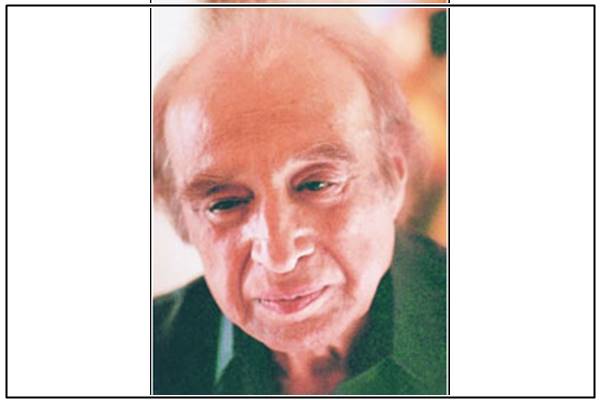It was Gulgee’s bad luck that he was murdered shortly before the country’s most popular leader Benazir Bhutto was assassinated. His sad end somehow receded in the memory of his compatriots, more so because the tragic death of BB was followed by a reign of looting and destruction. But all said, Abdul Ismail Gulgee, one of the very few titanic figures in this country’s history of visual arts, certainly doesn’t deserve to be forgotten even for a while.
The FOMMA-DHA Art Centre rose to the occasion when under its honorary director Nighat Mir a memorial meeting was held at the beautifully restored barrack turned art centre. Zulfiqar Ali Lakhani, chairman FOMMA, was supposed to be there, but the man who wears so many hats may have been detained elsewhere. Conspicuous by his absence was FOMMA’s executive director Jalal Uddin Ahmed. He is these days in the UAE in connection with his latest passion — the revival of the splendid journal Art and the Islamic World, which was once edited with distinction by Azra Jalal, when they were settled in London.
Nighat Mir set the ball rolling and did rather well when she said had she been able to communicate with the great artist she would have told him “Gulgee, your departure has left a gaping hole in the vast canvas of the art world, not just in Pakistan but all over the world.” She was right because artists and artistes of his calibre are citizens of the world.
A frail looking Amin Gulgee was there too. He spoke of his father and mother in a voice charged with emotions. “I used to call him dada, and my mother mama. They were great friends and I give them full marks for bringing us up, that is, me and my sister, as they did. They were so much interested in each other. They were best of friends. They were different in nature which is why they made a successful couple.” He dwelt on the ‘made for each other’ theme before he talked about the talents and the accomplishments of his father as an artist. At one point it seemed he would break down but he didn’t. Nighat Mir was holding his arm in support.
The next to speak was Marjorie Husain, the doyenne of art critics in Pakistan. She had had a long association with the late artist and had written extensively on him. “There are so many good things to remember about them. They were always smiling. They were always affectionate.” She didn’t say much about him as an artist perhaps because she has not left anything that is noteworthy unsaid. She recalled the speech that Gulgee had made in 1989 at the inauguration of a seminar at the DHA library, where her lovely painting Iqra, casts a spell on viewers.
Speaking at the end Javed Jabbar spoke highly of “the two inimitable personalities”. In one sense his was a welcome change from others in that when expressing regrets over the murders of the artist and his wife he remembered the poor maid, who just happened to be at the wrong place at the wrong time. (The one minute silence at the beginning of the programme was for the couple and, sadly, not for the maid).
On the Gulgees, he said they were gracious guests and warm and hospitable hosts. He claimed that behind the rough exterior of Zorro there was a kind-hearted person, who worked with zeal for the unprivileged at the SOS village.
“Gulgee had a pair of piercing and sharp eyes and his voice had unusually expressive qualities. It conveyed pain and pleasure alike in a highly eloquent manner. He was as articulate as his paintings.”
JJ, as he is commonly known, spoke about the amazing range of the artist’s subjects. “He drew a camel driver with the same passion as he did when he was asked to paint the head of a state,” said Jabbar, who was a friend of the couple for several years. He quoted the late Ahmad Parvaiz, an artist of no mean calibre, on Gulgee.
“He was a model for hundreds of young artists, who were inspired by him, even if some of them never cared to acknowledge it. He had an inexhaustible reservoir of energy. Marjorie had quite rightly said, way back in 1999 that it was an exciting experience watching him at work. She had aptly described him as a dervish of an artist,” said JJ, much to the discomfiture of the lady sitting next to him.
In the end the mike was taken to Gulgee’s relatives, admirers and some artists including Durriya Kazi and Nahid Raza. Nahid spoke in Urdu and the words came straight from her heart. That is Nahid Raza for you.
Courtesy: by Asif Noorani in DAWN



